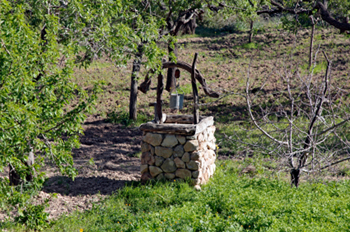Chlorate contamination of groundwater is a big problem that is often associated with the manufacture and use of explosives and munitions. To clean up chlorate-contaminated areas, some researchers turn to bacteria that can break down these compounds. These microbes can produce oxygen in anaerobic conditions, which can speed up the process of breaking down other compounds that do not degrade quickly in anaerobic environments such as the hydrocarbon benzene. Adding chlorate-reducing bacteria to contaminated, oxygen-poor environments could therefore encourage the growth of other bacteria that need oxygen to break down other compounds found at these sites.

Photo: istockphoto
Microbes usually need oxygen to break down benzene; in anaerobic environments, the process is very slow. Only a handful of bacterial strains are known to break down benzene under anaerobic conditions; researchers have now isolated a fifth strain. Alicycliphilus denitrificans strain BC produces oxygen while breaking down chlorates, and the oxygen is used by the microbe to speed up the degradation of benzene in anaerobic conditions.
Researchers are interested in sequencing two strains of A. denitrificans to compare their genomes. While strain BC can break down both chlorates and benzene, strain K601 can only break down benzene in an aerobic environment. The information is expected to lend the researchers insight into why these related strains are so physiologically different and provide more information on how individual bacterial strains could be used to potentially simultaneously clean up multiple pollutants.
Principal Investigators: Alfons Stams (Wageningen University)
Program: CSP 2009